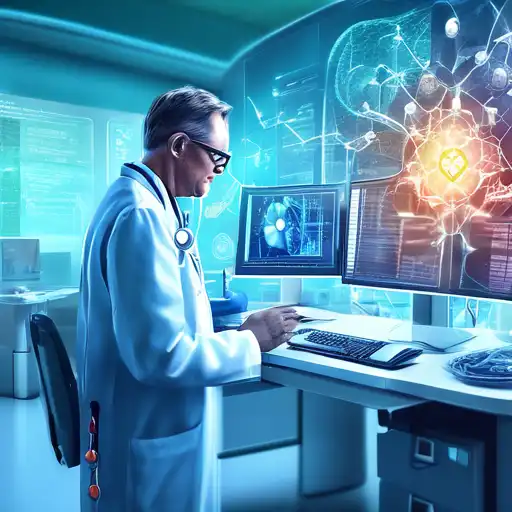The Transformative Impact of Data Science on Modern Healthcare
In the rapidly evolving world of healthcare, data science has emerged as a cornerstone of innovation, driving improvements in patient care, operational efficiency, and medical research. By harnessing the power of big data, machine learning, and predictive analytics, healthcare providers are now able to offer more personalized and effective treatments than ever before.
Personalized Medicine and Predictive Analytics
One of the most significant contributions of data science to healthcare is the advent of personalized medicine. Through the analysis of vast datasets, including genetic information, healthcare professionals can now predict an individual's susceptibility to certain diseases and tailor treatments accordingly. Predictive analytics also plays a crucial role in identifying potential health risks before they become critical, enabling preventative measures to be taken.
Enhancing Patient Care with Machine Learning
Machine learning algorithms are revolutionizing patient care by improving diagnostic accuracy and treatment recommendations. These algorithms can analyze complex medical data, such as imaging scans, at speeds and accuracies beyond human capability. This not only enhances the quality of care but also significantly reduces the time to diagnosis, allowing for quicker intervention.
Operational Efficiency in Healthcare Facilities
Data science is also transforming the operational aspects of healthcare facilities. By analyzing patterns in patient admissions, resource allocation, and staff scheduling, hospitals can optimize their operations to reduce wait times and improve patient satisfaction. Furthermore, predictive models can forecast patient inflow, helping facilities to prepare and allocate resources more effectively.
Challenges and Ethical Considerations
Despite its numerous benefits, the integration of data science into healthcare is not without challenges. Issues such as data privacy, security, and ethical use of patient information are of paramount concern. Ensuring the confidentiality and integrity of health data is critical to maintaining trust in these technological advancements.
For more insights into how technology is shaping the future of healthcare, explore our articles on Medical Technology and Big Data in Healthcare.
Conclusion
The impact of data science on healthcare is profound and far-reaching. From personalized medicine to operational efficiencies, the potential for improvement in patient care and outcomes is immense. As technology continues to advance, the role of data science in healthcare will only grow, offering exciting possibilities for the future of medicine.
